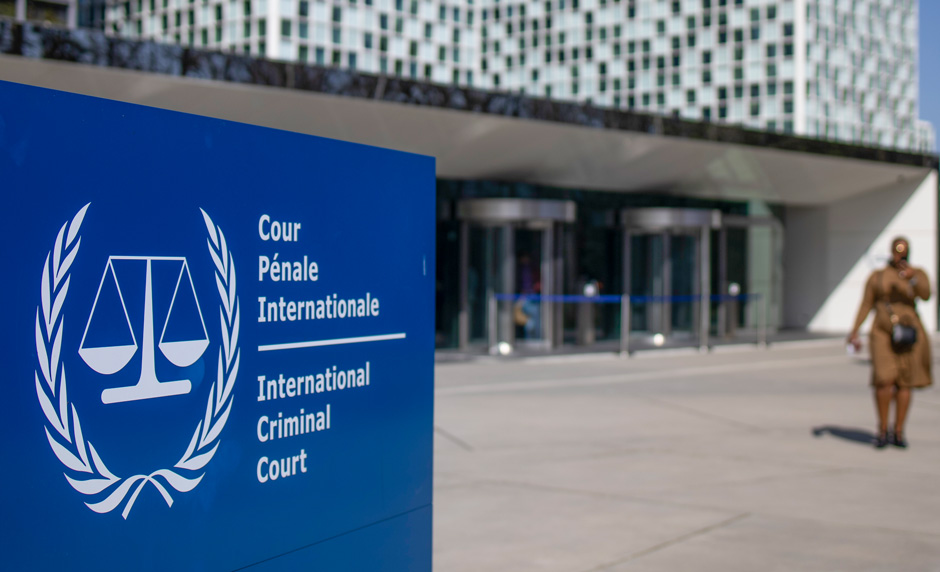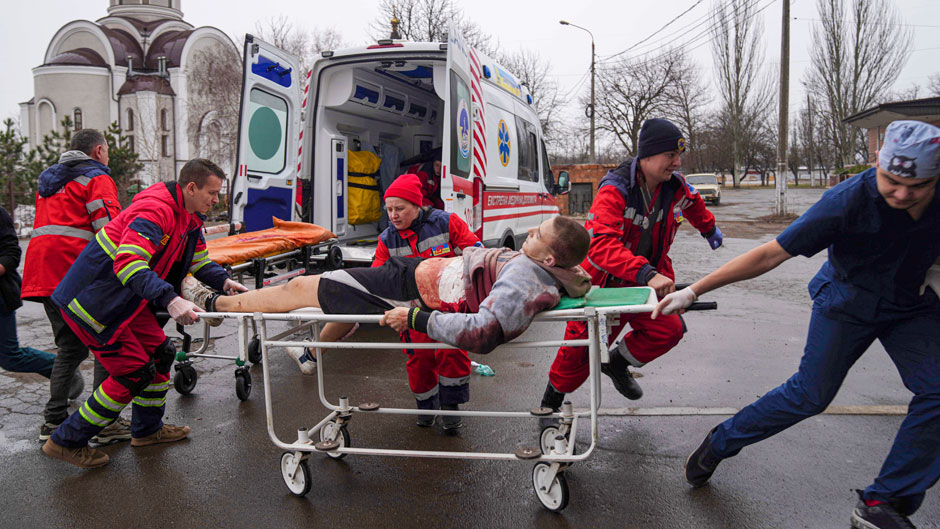The small child and two adult civilians were among those taking shelter at a nursery and kindergarten in northeastern Ukraine when the explosives hit.
The three would perish in the Feb. 25 attack, believed to have been carried out by Russian forces using internationally banned cluster munitions.
“Stomach turning” is how Agnès Callamard, secretary general of Amnesty International, described the incident, adding that it should be investigated as a war crime.
As Russian forces continue their assault on Ukraine, hammering its cities with artillery and switching to a new strategy of targeting civilian areas, the International Criminal Court (ICC) has launched an investigation into possible war crimes in the eastern European country.
But what constitutes a war crime and just how difficult will it be for ICC investigators to locate corroborating evidence?
Pablo Rueda-Saiz, an associate professor of law at the University of Miami School of Law, whose interests include international and comparative constitutional law, law and society, social movements, armed conflict, and globalization, provides insight about alleged war crimes in the Russian-Ukraine conflict.
What crimes are prosecuted by the ICC?
The International Criminal Court prosecutes four offenses: war crimes, crimes against humanity, genocide, and the crime of aggression. Now, what is specific about those crimes is that they were conducts that were prohibited by international law even before the end of the Second World War. They constituted violations of international law, but they were not crimes in the sense that states would be held responsible for incurring in those conducts, and no individuals were susceptible to punishment. But after the Second World War, all those conducts that already constituted breaches of international law were criminalized. People started being punished and going to prison for those crimes. That’s what we saw after World War II at the Nuremberg and Tokyo war crimes trials, when Hitler’s associates and leaders of the Empire of Japan were accused of having committed either war crimes, which was the largest category, or crimes of aggression.

What counts as a war crime?
Intentionally targeting civilians, attacks that result in undue civilian casualties, attacks on places such as historic monuments, health care facilities, schools, and other civilian sites.
Are war crimes being committed in Ukraine?
What’s happening now in Ukraine can be classified as two kinds of international crimes. One is the aggression of Russia against Ukraine. The invasion itself constitutes the crime of aggression. And then besides that, other conducts constitute war crimes. For example, the fact that Russia attacks Ukraine’s Holocaust memorial or attacks civilians, those acts would constitute war crimes under international law.
How difficult will it be to prove Russia has committed war crimes in Ukraine?
It should not be that difficult. For one thing, there is the fact that the Russian military has attacked a sovereign state. That constitutes the crime of aggression and is absolutely incontestable. But also, there could be additional crimes. And even though there is armed conflict in Ukraine right now, making access to certain areas difficult, documenting and proving war crimes is easier now than it was 30 years ago—what with cellphone cameras and satellites. With such technology, someone could document crimes and take the evidence outside the country, provided they have access to the internet. The entire world is watching what is unfolding in Ukraine. There have been videos posted to social media, and journalists and human rights groups are documenting eyewitness accounts of attacks on civilians.
Does the fact that neither Ukraine nor Russia are members of the ICC complicate matters when it comes to prosecuting those responsible for war crimes?
It does. Since Ukraine is not a member of the ICC, it cannot bring allegations of war crimes. Other ICC-member countries, however, can refer alleged crimes to the court. But as Russia is not a member of the court either, it is not legally required to give up its people for potential prosecution. This applies to individual criminal responsibility, but there’s also the responsibility under general international law, and that’s the responsibility of the state. So, in that sense, Ukraine could actually sue Russia and obtain compensation for damages, including damages for the killing of people and the commission of war crimes.

